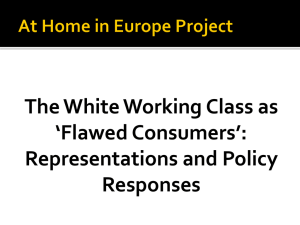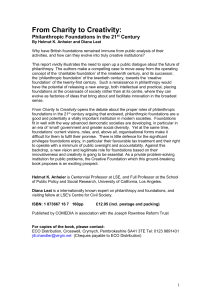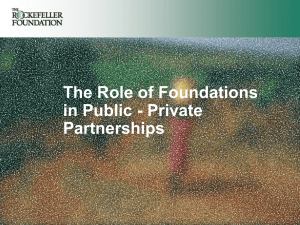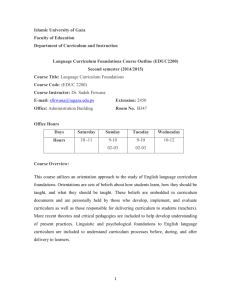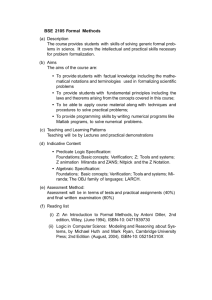What is a Foundations of Education Perspective
advertisement
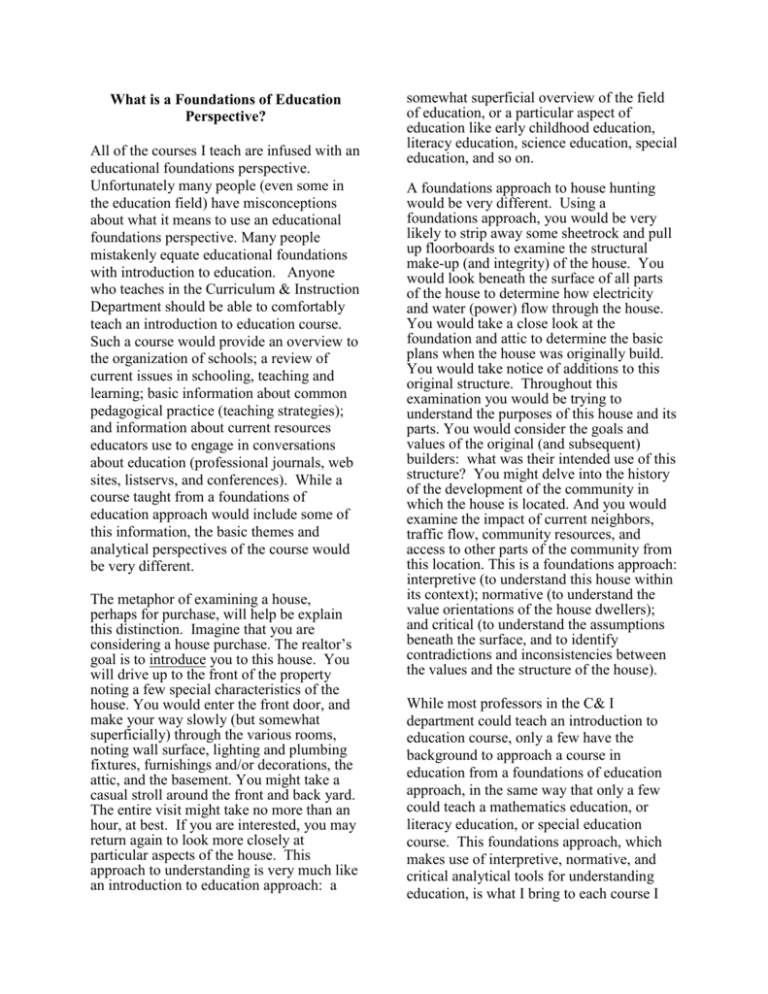
What is a Foundations of Education Perspective? All of the courses I teach are infused with an educational foundations perspective. Unfortunately many people (even some in the education field) have misconceptions about what it means to use an educational foundations perspective. Many people mistakenly equate educational foundations with introduction to education. Anyone who teaches in the Curriculum & Instruction Department should be able to comfortably teach an introduction to education course. Such a course would provide an overview to the organization of schools; a review of current issues in schooling, teaching and learning; basic information about common pedagogical practice (teaching strategies); and information about current resources educators use to engage in conversations about education (professional journals, web sites, listservs, and conferences). While a course taught from a foundations of education approach would include some of this information, the basic themes and analytical perspectives of the course would be very different. The metaphor of examining a house, perhaps for purchase, will help be explain this distinction. Imagine that you are considering a house purchase. The realtor’s goal is to introduce you to this house. You will drive up to the front of the property noting a few special characteristics of the house. You would enter the front door, and make your way slowly (but somewhat superficially) through the various rooms, noting wall surface, lighting and plumbing fixtures, furnishings and/or decorations, the attic, and the basement. You might take a casual stroll around the front and back yard. The entire visit might take no more than an hour, at best. If you are interested, you may return again to look more closely at particular aspects of the house. This approach to understanding is very much like an introduction to education approach: a somewhat superficial overview of the field of education, or a particular aspect of education like early childhood education, literacy education, science education, special education, and so on. A foundations approach to house hunting would be very different. Using a foundations approach, you would be very likely to strip away some sheetrock and pull up floorboards to examine the structural make-up (and integrity) of the house. You would look beneath the surface of all parts of the house to determine how electricity and water (power) flow through the house. You would take a close look at the foundation and attic to determine the basic plans when the house was originally build. You would take notice of additions to this original structure. Throughout this examination you would be trying to understand the purposes of this house and its parts. You would consider the goals and values of the original (and subsequent) builders: what was their intended use of this structure? You might delve into the history of the development of the community in which the house is located. And you would examine the impact of current neighbors, traffic flow, community resources, and access to other parts of the community from this location. This is a foundations approach: interpretive (to understand this house within its context); normative (to understand the value orientations of the house dwellers); and critical (to understand the assumptions beneath the surface, and to identify contradictions and inconsistencies between the values and the structure of the house). While most professors in the C& I department could teach an introduction to education course, only a few have the background to approach a course in education from a foundations of education approach, in the same way that only a few could teach a mathematics education, or literacy education, or special education course. This foundations approach, which makes use of interpretive, normative, and critical analytical tools for understanding education, is what I bring to each course I teach and each program that I help to develop. To generate foundations of education perspectives in my students, I make use of a study from a number of social science areas, especially history, sociology, anthropology, and philosophy. Thus when the New York State Education Department or NCATE establishes expectations that every teacher preparation program will include study in the history, philosophy and sociology of education, they are referring to study in the foundations of education, a field very distinct from the educational psychology, educational methods, and/or field placement experiences that are required in our education majors. Currently in the Curriculum & Instruction Department at SUNY Oswego, the following courses are directly connected to this Foundations of Education perspective: Edu 301 (Schooling, Pedagogy & Social Justice); Edu 501 (Foundations of Education); and Edu 500 (Critical Pedagogy). In addition, there are courses that by nature also relate to an educational foundations perspective. These include: Edu 380 (Culturally Relevant Teaching); Edu 381 (Schools & Urban Society); Edu 430 (Professionalism and Social Justice); and Edu 505 (Seminar in Urban Education).


